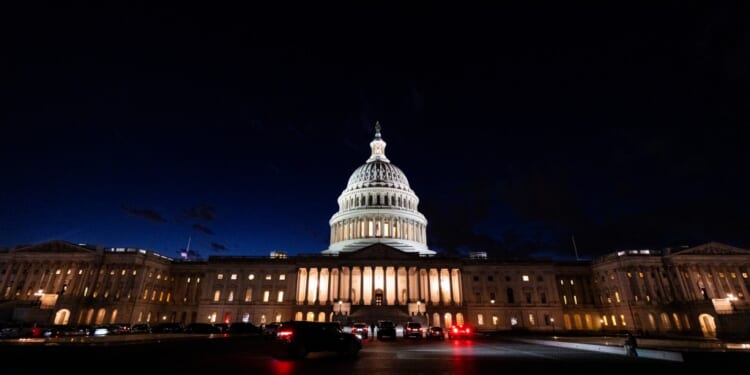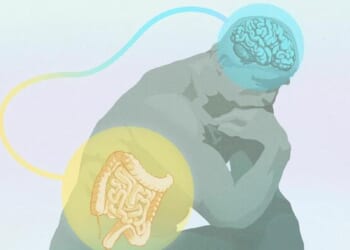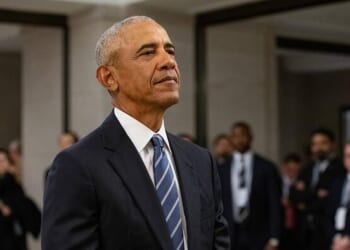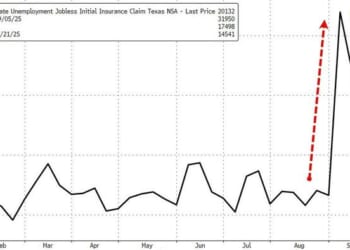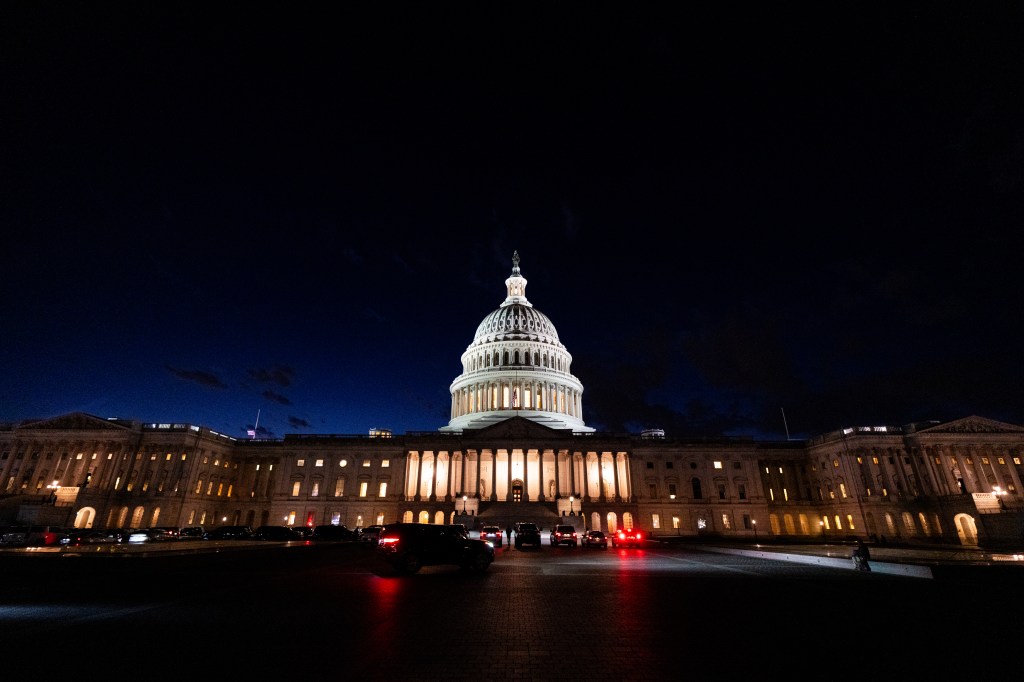
That was the state of play for weeks during the shutdown. In September, the Republican-controlled House passed a clean stopgap measure, known as a continuing resolution (CR), that would have extended current funding levels, daring Democrats in the Senate to deny the 60 votes it needed to advance. They filibustered, and the few bipartisan discussions of solutions at the beginning of the shutdown quickly died as the two sides went close to a month without major negotiations. Adding to the gridlock, House Speaker Mike Johnson kept the chamber out of session for the entirety of the shutdown in an attempt to leave Senate Democrats with no option other than the House-passed CR.
Ultimately, Democrats’ resolve proved stronger than Republicans anticipated. The House’s CR, which would have funded the government until November 21, was intended to provide a bit of runway for Congress to pass the 12 appropriations bills it is supposed to send to the president’s desk each year (though it has struggled to do so, especially in recent years). However, the window the measure gave Congress to finish more long-term appropriations became smaller as Democrats in the Senate continued to block it into November.
As the CR became obsolete, Republicans grew an appetite for negotiating with Democrats, and bipartisan conversations resumed earlier this month, providing a glimmer of hope that the shutdown would end. But then there was a slight hiccup in that progress following last Tuesday’s off-year elections. Expected to do well, Democrats dominated, which many took as a sign that the American people were with them.
“I think all over this country, people are saying, ‘Please, Democrats, you haven’t been strong in the past. Stand tall now. Protect us,’” Sen. Bernie Sanders of Vermont told reporters the day after the election.
The election results gave progressive senators like him more ammunition to argue that the Democratic conference should hold the line, but they were persuasive only for a moment. While Democrats attempted to extract a few more concessions from Republicans, by that point, enough had seen where this was going.
They gave in the following weekend. Often during stalemates in the Senate, informal bipartisan negotiating groups form to try to reach a resolution. That happened here, and negotiators constructed a deal to reopen the government that received the 60 votes it needed to advance. The Senate passed it Monday night by a vote of 60-40, teeing it up for passage in the House two days later. Sen. Rand Paul of Kentucky was the lone Republican to oppose it, and eight Democratic senators, including Minority Whip Dick Durbin, supported it. Minority Leader Chuck Schumer voted against it.
The agreement fully funds the government until January 30 and reverses the mass firings of federal employees that the Trump administration conducted during the shutdown, halting further reductions in force until the end of January. It also funds the Department of Veterans Affairs, the Department of Agriculture, the legislative branch, and other programs such as the Supplemental Nutrition Assistance Program (SNAP) until the end of September 2026.
Importantly, there’s nothing about health care, which is why it got so little Democratic support. Democrats’ main ask during the shutdown was an extension of tax credits for people who buy health care coverage under the Affordable Care Act, aka Obamacare. Congress expanded the populations eligible for them in response to the COVID-19 pandemic, but the expansion is set to expire at the end of the year. All Democrats got on that central demand was a promise from Senate Majority Leader John Thune that the chamber would hold a vote on extending the credits in December. There’s no guarantee that an extension would pass the Senate, nor has Johnson committed to a similar vote in the House. Agreeing to a vote on the Obamacare tax credits is not even a new concession. Thune was ready to promise it to Democrats almost a month ago.
The decision by the eight Democratic senators to vote to reopen the government upset many in their own party, both among the base and elected officials. “There’s no way to defend this,” Sen. Chris Murphy of Connecticut said in a video posted to X after the deal took shape. “And you are right to be angry about it. I’m angry about it.”
Democrats will now reckon with the question of whether the shutdown was worth it. Democratic senators who supported its continuation say it was, but Sen. Angus King of Maine, one of the senators who voted to reopen the government, had other ideas. “It didn’t achieve its goal,” he told CNN. “I don’t see any evidence that the Republicans are going to have a different position a week or a month from now. In the meantime, a lot of people are going to get hurt.”
As the shutdown dragged on, Democrats also risked that Republicans would take “the nuclear option”—as the president had been aggressively pushing for—and abolish the filibuster, thus being able to end the shutdown with a conventional majority vote.
So what did Democrats gain from shutting down the government? The conventional wisdom says that triggering a shutdown to get policy wins is not usually successful. Congressional Republicans did so in 2013 to demand the defunding of Obamacare. They didn’t get it. Trump did the same thing for border wall funding during his first term. He didn’t get it. And now Democrats just did it for health care policy. The ensuing Senate vote may yield something for them, but getting the full tax credit extension is unlikely.
The shutdown’s main benefits for Democrats are in the realm of politics, not policy. They might have given their voters more energy in the off-year elections last week. Their base wanted to see them oppose Trump with more vigor, and Democratic diehards were disappointed back in March when several Democratic senators folded and refused to shut the government down after Republicans dared them to block an earlier CR. The congressional effort in the fall may have increased turnout on Election Day—but they were expected to do well anyway, so it’s not as though the shutdown was a pivotal element of their victory.
Still, even if the immediate electoral benefit was marginal, the shutdown made Trump sweat. As he hosted Republican senators at the White House the morning after the election, he partially blamed the shutdown for the poor showing by the GOP. “If you read the pollsters, the shutdown was a big factor, negative for the Republicans,” he said, pressuring the senators to kill the filibuster to open the government.
The biggest silver lining for Democrats is that they may have put themselves on a solid footing for the midterms next year. Health care affordability will be a major issue during the elections. A message combining the expiration of the Obamacare tax credits—which would cause premiums for people who purchase coverage through the Affordable Care Act to more than double—with the unpopular health care provisions of the summer’s One Big Beautiful Bill Act could be effective. Trump and other Republicans seem to recognize the vulnerability, and they have started talking more about solutions to the cost of health care recently.
Ask Democrats who voted to reopen, and that’s the main benefit they saw from the shutdown. “I think we were able to focus in America’s attention on the importance of addressing health insurance costs,” Sen. Jeanne Shaheen of New Hampshire told reporters.

